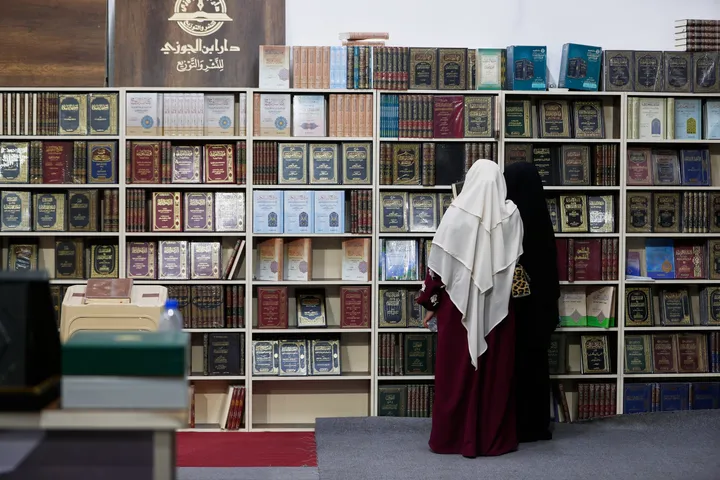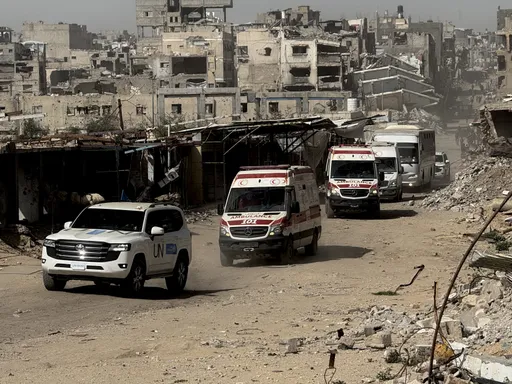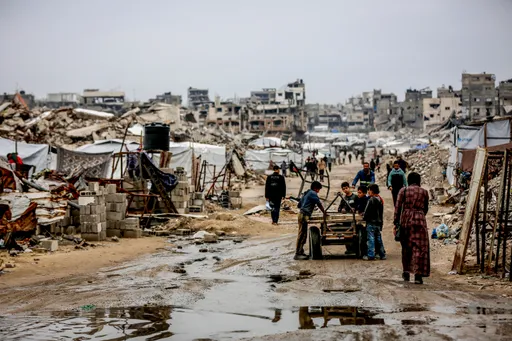A young girl’s poignant plea to an Israeli court has captured the plight of Palestinians in occupied Jerusalem as they face the impending demolition of their homes.
It remains unclear whether a clear deadline exists for evictions, but with winter already setting in, the families face the grim prospect of living without a shed over their heads. Winters in the city can reach as low as 5 degrees celsius.
“The Israeli occupation wants to raze our home, and I don’t want the occupation to demolish my room because it has my bed and my toys,” Yara Fares Al Rajabi pleaded in response to an Israeli court ordering Palestinian natives of Silwan, East Jerusalem to destroy their homes and properties, both private and commercial.
Yara’s home is one of 86 Palestinian houses the Israeli court has marked for demolition and continues a pattern of similar orders the Israeli government has forced on several Palestinian families in the occupied West bank.
The demolition order affects 13 families in the Silwan district, which is home to 119 families living in 88 buildings. With no support or recourse for legal justice, at least 1,550 Palestinians are set to be expelled and forced onto the streets.
READ MORE: Why Silwan became another Palestinian protest hotspot
Israel’s Supreme Court declared Palestinians’ homes in Batn El Hawa “property of the Jewish association” that allegedly owned the land prior to 1948.
The organisation, “Aterat Cohanim”, has been actively displacing Palestinians in the neighbourhood since 2015. The Israeli government says the contested homes were built illegally, a claim the families deny.
Palestinians say they have lived in these homes for decades, inheriting them from their grandparents, some older than the Israeli state founded in 1948.
This is not the first time Palestinians have been ordered to raze their own homes—failure to comply means a $6000 fine for each family along with forced eviction.
Winter eviction
For Yara and her family, eviction could come at any moment and without warning. In April 2021, Palestinian residents in Jaffa were forced to live in cars and tents after being evicted by an Israeli real estate company that built prohibitively expensive residential properties over their homes.
With less than 15,000 Palestinians in Jaffa, ‘court-sanctioned’ settlements, land seizures and evictions offer Israel a dubious ‘legal’ means of reshaping the land’s demographics.
Many rights groups have slammed the government for misusing Israeli courts to force the families out of East Jerusalem as part of its policy of changing the area’s demographics by building Jewish settlements.
While Israeli settlements and forced expulsions are deemed illegal under international law, Palestinians can only object through the Israeli courts which issue the order.
Israeli law reflects a belief that Jewish people have a divine right over the land and properties held by Palestinians. In practice, Palestinian appeals in Israeli courts can only postpone evictions or demolitions.
Many have refused to uproot or demolish their homes after occupation authorities ordered them to evacuate in preparation for demolition.
Faris Al-Rajabi—Yara’s father—told Al-Qastal that his family lives in the Mount Batn Al-Hawa neighbourhood, located south of Al Aqsa Mosque.
Located outside the walls of Jerusalem’s Old City, the area is a target for settlement projects aimed at turning it into the southern entrance to the Temple Mount.
READ MORE: UN: Palestinians lose billions under Israeli policies in occupied West Bank
Thousands of activists used the Arabic hashtag "Save the Silwan Neighbourhood" on social media in a bid to draw public attention to the forced displacement of its residents.
Silwan now faces the same fate as the Sheik Jarrah district, subject to Israeli security violence and repeated attempts to forcibly displace its Palestinian residents.
In an interview with Al Jazeera Mubasher, a resident of a targeted neighbourhood said courts issued Israeli settlement associations with rights to property ownership in Silwan.
The court’s decision was issued despite a widely-publicised appeal that was summarily denied.
The ruling gives Israelis the right to own property and land where Palestinians have lived for as long as they can remember.
Jerusalem’s Municipality has already changed Silwan’s ‘Al-Bustan’ neighbourhood’s name to Gan Hamelekh (The King’s Garden). Israel claims the area was a garden for Israelite kings thousands of years ago.
According to a UN report, tighter Israeli closure policy, restrictions, and military operations in the occupied West Bank since 2000 have exacted an economic toll on Palestinians estimated at $57.7 billion.























